Among her other awards she is the recipient of a Carl Sandburg Award and fellowships from the National Endowment for the Arts in fiction and poetry. Dr. Castillo’s So Far From God and Loverboys were on the banned book list controversy with the TUSD in Arizona. 2013 Recipient of the American Studies Association Gloria Anzaldúa Prize to an independent scholar which was published in the 20th Anniversary edition of her groundbreaking collection of essays, MASSACRE OF THE DREAMERS; Essays on Xicanisma.
2018 Recipient of PEN Oakland Reginald Lockett Lifetime Achievement Award, honoring BLACK DOVE: Mamá, Mi’jo, and Me. 2018: MALCS (Mujeres Activistas en Letras y Cambios Social Institute)” Xicana Critical Thought Leader Award.”
Spring 2016 Publication of BLACK DOVE: Mamá, Mi’jo, and Me (Feminist Press) released to critical acclaim. It is the recent recipient of a 2016 International Latino Book Award in the category of autobiography and the recipient of the 2017 LAMBDA Award in the category of best bisexual non-fiction. Her most recent novel, GIVE IT TO ME is the recipient of the LAMBDA AWARD, 2015.
June 2015, Ana Castillo was given the Lifetime Achievement Award in literature for her “literary contributions to the Latino/a community, and commitment to the betterment of our younger generations” by Latina 50 Plus, a motivational organization based in the Bronx, NY.
The classic, award winning collection of essays 20th anniversary updated edition of Massacre of the Dreamers was released Nov. 1, 2014 (UNMP) The award winning novel in verse, WATERCOLOR WOMEN, OPAQUE MEN will be re-released Fall, 2016 by Northwestern University Press in a new edition.
WATERCOLOR WOMEN, OPAQUE MEN (novel-in-verse, Curbstone Press, 2005, recipient of Independent Publishers Book Award) was released in an updated edition by Northwestern University Press, Feb., 2017.
Biography from https://www.anacastillo.net/bio/

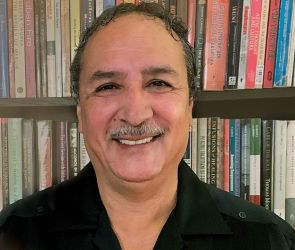 Ricardo Carrillo, Ph.D., in private practice as a clinical forensic psychologist. He is currently the director of a prevention and early intervention project for La Clinica de la Raza. He continues to conduct policy research for the California Endowment on disparities in Latino Mental Health. He served as executive director of Primer Paso Institute, Inc. a Latino behavioral health organization serving rural communities in the areas of substance abuse, mental health and domestic violence. As Director of Latino Mental Health for Kaweah Delta Health Care District is most recognized as an expert witness and international consultant in the areas of family therapy, domestic violence, cross cultural psychology, forensic psychology, and cultural competence. He has provided leadership in the areas of program development with domestic violence offenders, Latino mental health, and chemical dependency populations. He attended the California School of Professional Psychology in Fresno, CA. He has taught for ten years in professional psychology schools in the Bay area and Fresno, CA. He continues to provide professional consultation to a variety of agencies. He is a training consultant for the National Latino Alliance on Domestic Violence (Alianza) in the Latino Community and the National Compadres Network, Inc. He has 15 years of recovery and stems from several generations of addicts.
Ricardo Carrillo, Ph.D., in private practice as a clinical forensic psychologist. He is currently the director of a prevention and early intervention project for La Clinica de la Raza. He continues to conduct policy research for the California Endowment on disparities in Latino Mental Health. He served as executive director of Primer Paso Institute, Inc. a Latino behavioral health organization serving rural communities in the areas of substance abuse, mental health and domestic violence. As Director of Latino Mental Health for Kaweah Delta Health Care District is most recognized as an expert witness and international consultant in the areas of family therapy, domestic violence, cross cultural psychology, forensic psychology, and cultural competence. He has provided leadership in the areas of program development with domestic violence offenders, Latino mental health, and chemical dependency populations. He attended the California School of Professional Psychology in Fresno, CA. He has taught for ten years in professional psychology schools in the Bay area and Fresno, CA. He continues to provide professional consultation to a variety of agencies. He is a training consultant for the National Latino Alliance on Domestic Violence (Alianza) in the Latino Community and the National Compadres Network, Inc. He has 15 years of recovery and stems from several generations of addicts. Luis Alberto Urrea, 2005 Pulitzer Prize finalist for nonfiction and member of the Latino Literature Hall of Fame, is a prolific and acclaimed writer who uses his dual-culture life experiences to explore greater themes of love, loss and triumph. Born in Tijuana, Mexico to a Mexican father and an American mother, Urrea has published extensively in all the major genres. The author of 13 books, Urrea has won numerous awards for his poetry, fiction and essays. Urrea lives with his family in Naperville, IL, where he is a professor of creative writing at the University of Illinois-Chicago.
Luis Alberto Urrea, 2005 Pulitzer Prize finalist for nonfiction and member of the Latino Literature Hall of Fame, is a prolific and acclaimed writer who uses his dual-culture life experiences to explore greater themes of love, loss and triumph. Born in Tijuana, Mexico to a Mexican father and an American mother, Urrea has published extensively in all the major genres. The author of 13 books, Urrea has won numerous awards for his poetry, fiction and essays. Urrea lives with his family in Naperville, IL, where he is a professor of creative writing at the University of Illinois-Chicago.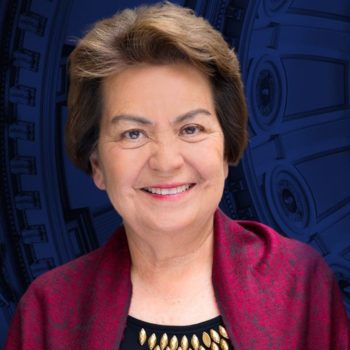
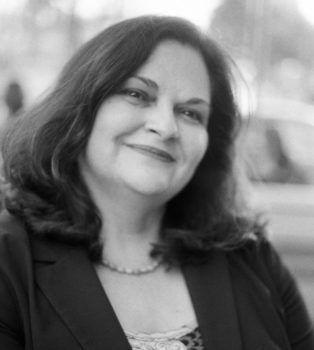 Laura E. Gómez is a Professor of Law at UCLA School of Law, with appointments in UCLA’s Departments of Sociology and Chicana and Chicano Studies. In recent years she has served as Interim Dean of the Division of Social Sciences in the College of Letters & Science and Vice Dean of UCLA School of Law. Her research focuses on the intersection of law, politics and inequality both today and in the distant past. Her books include the following: Misconceiving Mothers: Legislators, Prosecutors and the Politics of Prenatal Drug Exposure (1997), which is widely taught in law and society and gender studies courses; Mapping “Race”: Critical Approaches to Health Disparities Research (2013); and Manifest Destinies: The Making of the Mexican American Race (2007), which is widely taught in ethnic studies and history courses.
Laura E. Gómez is a Professor of Law at UCLA School of Law, with appointments in UCLA’s Departments of Sociology and Chicana and Chicano Studies. In recent years she has served as Interim Dean of the Division of Social Sciences in the College of Letters & Science and Vice Dean of UCLA School of Law. Her research focuses on the intersection of law, politics and inequality both today and in the distant past. Her books include the following: Misconceiving Mothers: Legislators, Prosecutors and the Politics of Prenatal Drug Exposure (1997), which is widely taught in law and society and gender studies courses; Mapping “Race”: Critical Approaches to Health Disparities Research (2013); and Manifest Destinies: The Making of the Mexican American Race (2007), which is widely taught in ethnic studies and history courses.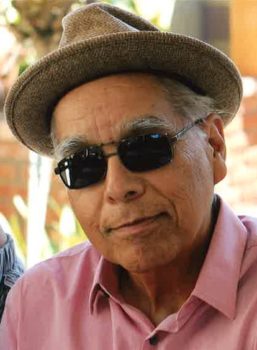 David Avalos came up in Old Town National City (OTNC), California, a Mexican-American community that nurtured his parents and family, and produced internationally recognized Chicano artists, human rights activists, scholars, and educators who continue to influence Avalos’ thinking and actions. A Vietnam-era U.S. Army veteran stationed in West Germany in the late 1960s, he was able to attend South Bay Trade School, SDSU and UCSD on the G.I. Bill. At the Centro Cultural de la Raza throughout the 1980s he worked with multi-disciplinary artists, including the Border Art Workshop/Taller de Arte Fronterizo, a collective focused on the dynamic balance of US-Mexico absurdities. As a CSUSM teacher since 1991, he learns while teaching students who bring their diverse backgrounds, world views, intuitions, insights and ideas into the classroom. Writings about and by him are included in numerous academic publications and archives. His art works are in regional and national museum collections.
David Avalos came up in Old Town National City (OTNC), California, a Mexican-American community that nurtured his parents and family, and produced internationally recognized Chicano artists, human rights activists, scholars, and educators who continue to influence Avalos’ thinking and actions. A Vietnam-era U.S. Army veteran stationed in West Germany in the late 1960s, he was able to attend South Bay Trade School, SDSU and UCSD on the G.I. Bill. At the Centro Cultural de la Raza throughout the 1980s he worked with multi-disciplinary artists, including the Border Art Workshop/Taller de Arte Fronterizo, a collective focused on the dynamic balance of US-Mexico absurdities. As a CSUSM teacher since 1991, he learns while teaching students who bring their diverse backgrounds, world views, intuitions, insights and ideas into the classroom. Writings about and by him are included in numerous academic publications and archives. His art works are in regional and national museum collections.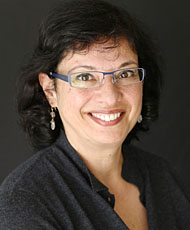 Though she is best known for her book Enrique’s Journey, Sonia Nazario has had a distinguished career as an award-winning journalist and writer.
Though she is best known for her book Enrique’s Journey, Sonia Nazario has had a distinguished career as an award-winning journalist and writer.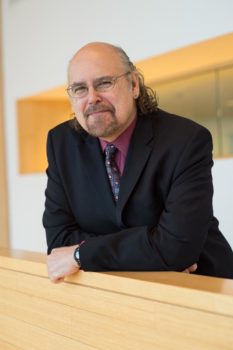 Carrasco is the Neil L. Rudenstine Professor of the Study of Latin America in the Harvard Divinity School, with a joint appointment with the Department of Anthropology in the Faculty of Arts and Sciences. He is the author and editor of over 15 books including the award winning Quetzalcoatl and the Irony of Empire, Cave, (Chancellors’ Book Award, University of Colorado) City and Eagle’s Nest: An Interpretive Journey Through the Mapa de Cuauhtinchan #2 (Gold Medal-Publishers of the West) and the Director of the Raphael J. and Fletcher Lee Moses Mesoamerican Archive (located in the Peabody Museum, the oldest museum of archaeology and ethnology in the U.S.) which has helped organize new knowledge about the religions and cultures of Mesoamerica.
Carrasco is the Neil L. Rudenstine Professor of the Study of Latin America in the Harvard Divinity School, with a joint appointment with the Department of Anthropology in the Faculty of Arts and Sciences. He is the author and editor of over 15 books including the award winning Quetzalcoatl and the Irony of Empire, Cave, (Chancellors’ Book Award, University of Colorado) City and Eagle’s Nest: An Interpretive Journey Through the Mapa de Cuauhtinchan #2 (Gold Medal-Publishers of the West) and the Director of the Raphael J. and Fletcher Lee Moses Mesoamerican Archive (located in the Peabody Museum, the oldest museum of archaeology and ethnology in the U.S.) which has helped organize new knowledge about the religions and cultures of Mesoamerica.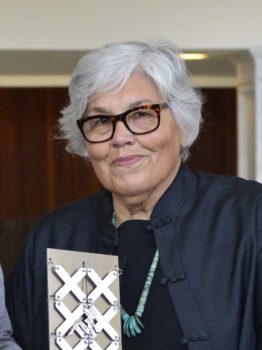 Born in Chihuahua, Mexico, and raised in Los Angeles, Lourdes Portillo has been making award-winning films about Latin American, Mexican, and Chicano/a experiences and social justice issues for nearly thirty years. Since her first film, After the Earthquake/Despues del Terremoto (1979), she has produced and directed over a dozen works that reveal her signature hybrid style as a visual artist, investigative journalist, and activist.
Born in Chihuahua, Mexico, and raised in Los Angeles, Lourdes Portillo has been making award-winning films about Latin American, Mexican, and Chicano/a experiences and social justice issues for nearly thirty years. Since her first film, After the Earthquake/Despues del Terremoto (1979), she has produced and directed over a dozen works that reveal her signature hybrid style as a visual artist, investigative journalist, and activist.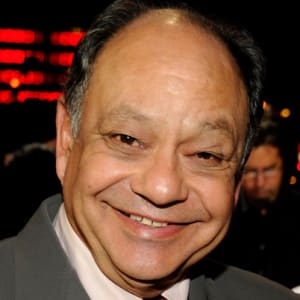 Actor Cheech Marin is one of Hollywood’s most recognizable Hispanic stars. Once half of the stoner-hippie comedy team Cheech and Chong, he enjoyed immense success in the 1970s, but went on to tackle a far wider range of roles. To the surprise of many, he has even played a police detective, and in 1992 released an album of children’s songs. Marin has also become a renowned patron of Chicano art, and is thought to own the largest collection of such in private hands. “I personify all the changes our generation went through, in the extreme,” he joked with a People interviewer in 1998.
Actor Cheech Marin is one of Hollywood’s most recognizable Hispanic stars. Once half of the stoner-hippie comedy team Cheech and Chong, he enjoyed immense success in the 1970s, but went on to tackle a far wider range of roles. To the surprise of many, he has even played a police detective, and in 1992 released an album of children’s songs. Marin has also become a renowned patron of Chicano art, and is thought to own the largest collection of such in private hands. “I personify all the changes our generation went through, in the extreme,” he joked with a People interviewer in 1998.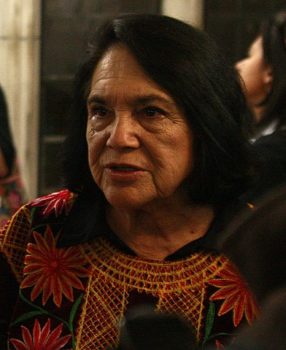 Dolores Huerta was born Dolores Clara Fernández on April 10, 1930, in the mining town of Dawson, New Mexico. She was the daughter of Juan Fernández and Alicia Chávez. Her father was a farm worker, miner, and union activist elected to the New Mexico legislature in 1938. When she was three, her parents divorced. Huerta moved with her two brothers and mother to Stockton, California, where she spent most of her childhood and early adult life.
Dolores Huerta was born Dolores Clara Fernández on April 10, 1930, in the mining town of Dawson, New Mexico. She was the daughter of Juan Fernández and Alicia Chávez. Her father was a farm worker, miner, and union activist elected to the New Mexico legislature in 1938. When she was three, her parents divorced. Huerta moved with her two brothers and mother to Stockton, California, where she spent most of her childhood and early adult life.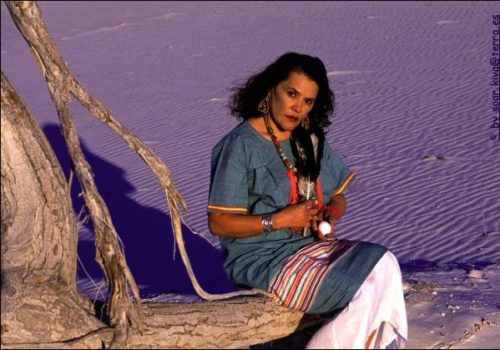 Elena Avila(1944-2011) is the author of the national bestseller Woman Who Glows in the Dark: A Curandera Reveals Traditional Aztec Secrets of Physical and Spiritual Health. Before becoming a spiritual counselor, Avila studied nursing and psychiatric nursing. In addition to her book, Avila also wrote poetry, plays, and gave lectures throughout the United States.
Elena Avila(1944-2011) is the author of the national bestseller Woman Who Glows in the Dark: A Curandera Reveals Traditional Aztec Secrets of Physical and Spiritual Health. Before becoming a spiritual counselor, Avila studied nursing and psychiatric nursing. In addition to her book, Avila also wrote poetry, plays, and gave lectures throughout the United States.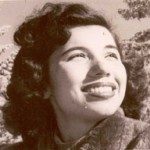 Elizabeth Martínez, in full Elizabeth Sutherland Martínez, byname Betita, (born December 12, 1925, Washington, D.C., U.S.—died June 29, 2021, San Francisco, California), American activist who fought against poverty, racism, and militarism in the United States.
Elizabeth Martínez, in full Elizabeth Sutherland Martínez, byname Betita, (born December 12, 1925, Washington, D.C., U.S.—died June 29, 2021, San Francisco, California), American activist who fought against poverty, racism, and militarism in the United States.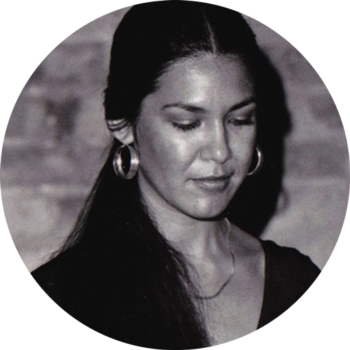
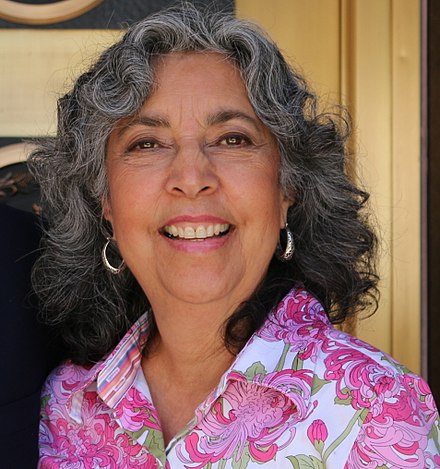 Carmen Lomas Garza was born in Kingsville, Texas. At 13, she made a commitment to pursue a career in art and taught herself elements of drawing. Her works of art depict childhood memories of family and friends in a wide range of activities from making tamales to dancing to Tejano music.
Carmen Lomas Garza was born in Kingsville, Texas. At 13, she made a commitment to pursue a career in art and taught herself elements of drawing. Her works of art depict childhood memories of family and friends in a wide range of activities from making tamales to dancing to Tejano music.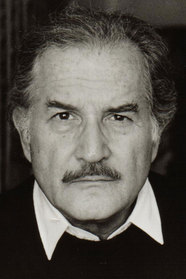 Carlos Fuentes (1928-2012) was one of the most influential and celebrated voices in Latin American literature. He was the author of 24 novels, including Aura, The Death of Artemio Cruz, The Old Gringo and Terra Nostra, and also wrote numerous plays, short stories, and essays. He received the 1987 Cervantes Prize, the Spanish-speaking world’s highest literary honor.
Carlos Fuentes (1928-2012) was one of the most influential and celebrated voices in Latin American literature. He was the author of 24 novels, including Aura, The Death of Artemio Cruz, The Old Gringo and Terra Nostra, and also wrote numerous plays, short stories, and essays. He received the 1987 Cervantes Prize, the Spanish-speaking world’s highest literary honor.